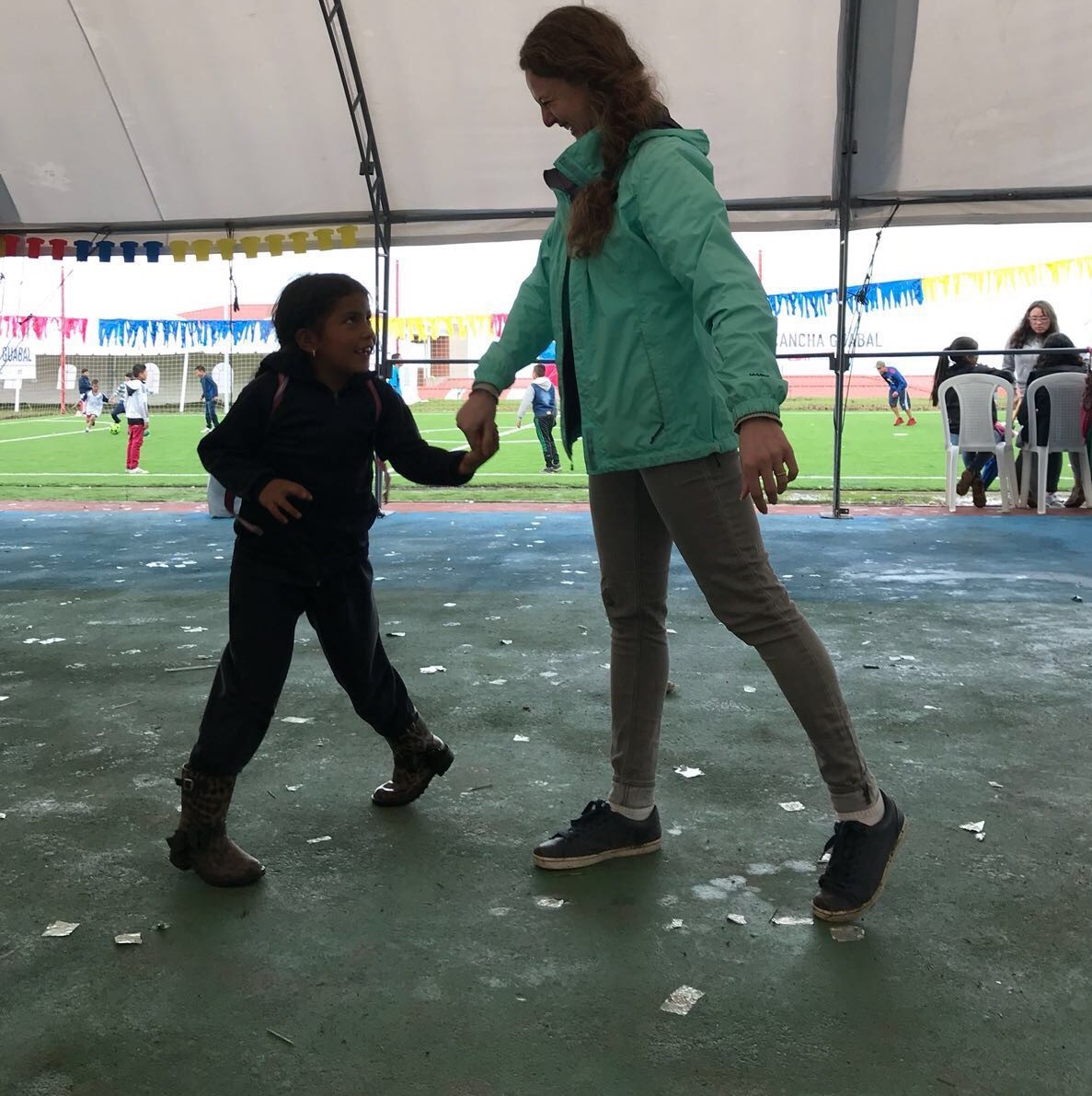
10 Years, 10 Questions
An Interview with Beyond Sport Managing Director, Lex Chalat
WE’RE NEARING THE END OF A WONDERFUL 10TH ANNIVERSARY YEAR FOR THE BEYOND SPORT FAMILY -- AND FOR OUR MANAGING DIRECTOR, LEX CHALAT. WE CAUGHT UP WITH HER BETWEEN FLIGHTS (NOT EASY!) TO PICK HER BRAIN ON THE EARLY DAYS OF THE COMPANY AND ON WHAT'S INSPIRING HER IN THE WORLD OF SPORT FOR SOCIAL CHANGE.
READ ON AND BE SURE TO SHARE SOME OF YOUR FAVORITE BEYOND SPORT FAMILY MEMORIES USING #BEYONDSPORT10.

1. There are many ways to drive social change. What made you choose sport?
I was a serious gymnast for nearly 20 years. It made me who I am and helped me learn key values and principles in life. My teammates were my family and best friends - they taught me how to care for others, but also how to not give up on my dreams. When I graduated from university (University of Pennsylvania), I got a job at a small community newspaper in Southwest Philadelphia that was set up as a social enterprise. Owned by the local Community Development Council (CDC), it only printed positive and educational news about the community - held up local heroes, shared where resources, food, courses could be taken, etc. For an area that usually only made the news because of its daily murder rate, this was a refreshing approach. All advertisement income went back into the CDC and therefore to the community’s aid.
As editor of the small paper, I was also the journalist, the art director, the production manager, and sometimes, even the delivery person. Every Thursday, I would walk up and down the streets handing out papers - and I quickly got to know the community this way. What I saw during my two-year stint there, and subsequently two years writing columns and editing for other papers in Philly and NYC, was that in the most devastated areas of the city -- where even law enforcement and social services couldn’t go -- the people who were making a difference and creating long-term and sustainable positive change were those who were using sport. Whether it was a coach or someone who insisted on keeping the rec center open until midnight, it was through sport, and often art, where the change was happening. After writing about it for nearly five years, I decided I wanted to actually do something about it.
2. You were the second ever employee of Beyond Sport. What did you see in the young company that made you want to be a part of it and has that changed over the years?
Beyond Sport was born out of Benchmark Sport International, a holdings company started by Nick (Keller) that includes a group of businesses, all sport-based. But Beyond Sport was special because it was filling a need that had been triggered by the recession of July 2008. That said, the Holding company itself was still small - only seven employees total and at the time, Beyond Sport was merely an idea, albeit with a lot of influential and high-profile backing.
I read about Beyond Sport in the news when it launched and I thought - I need to be part of that company. I had just finished my dissertation at London School of Economics on the socio-economic impact of sports and arts on urban environments. As a journalist before grad school, I had seen first-hand what sport could do for a community that seemed otherwise forgotten by support systems. I also saw how isolated NGOs could be without the right connections or platforms to facilitate partnerships with the private sector. So I knew Beyond Sport, and Nick, were onto something special. The funny thing is, when I first applied for the job I didn’t get it! So I called and called and called until finally they yielded and agreed to bring me on as an intern. Ten years later, Benchmark now has over 50 people in offices on two continents.
3. Tell us a bit about the early days of the company. What are a some memorable moments from your first few years at Beyond Sport?
The amount of work that went into those initial years (and still does!) was extraordinary. With the small team we had, we managed to pull off an amazing inaugural Summit and Awards.
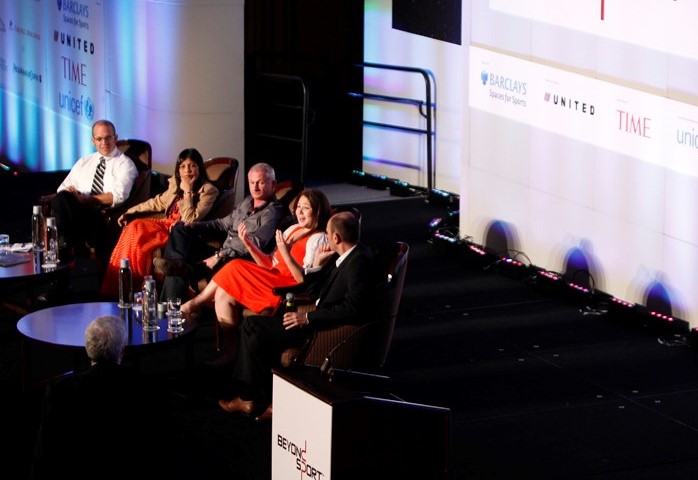
The young team we had then, I’ll never forget, never went to sleep - they pulled all-nighters the entire Summit, writing scripts, cutting footage, making name badges… so the first memory I have is of our team and how close we were and how hard we worked.
The second I would say would probably be experiencing sport for development in its truest form when I met Amy and Rob Castaneda from Beyond the Ball (2010 Beyond Sport Global Awards winners for the “Most Courageous Use of Sport”). They ran a basketball project in Little Village in Chicago, Illinois and after spending an afternoon at one of their programs, we went for a bite to eat where they told me their story. Both high school teachers, they had experienced threats after Amy had told the police about local gang activity. The threats went from bad to worse until one night they woke up to their house being set on fire. Barely escaping with their lives, it looked as if they would be forced to move. Instead, they decided to stay, and start a program that provided safe places for youth, away from violence, on the border of two incredibly dangerous gangs. Their program went from toddlers up through young adults, using basketball as a way to start dialogue and teach key preventative lessons from a young age. I think of Rob and Amy often - because their’s is a true story of courage, but also of ownership. They saw a true problem, and instead of running away or ignoring, they stood strong and worked hard to address the issue. Truly inspirational.
4. Beyond Sport has activated around the world on a wide range of issues. Is there one event, project or partnership that stands out to you above all the others -- either the most challenging, rewarding or both?
I’d have to say supporting ESPN on their Built to Play project over the past three years stands out. We’ve helped them, along with love.fútbol, A Ganar, Magic Bus, Coaches Across Continents and a slew of local NGOs, create safe spaces and programming in seven communities across Latin America, India and soon, Australia.
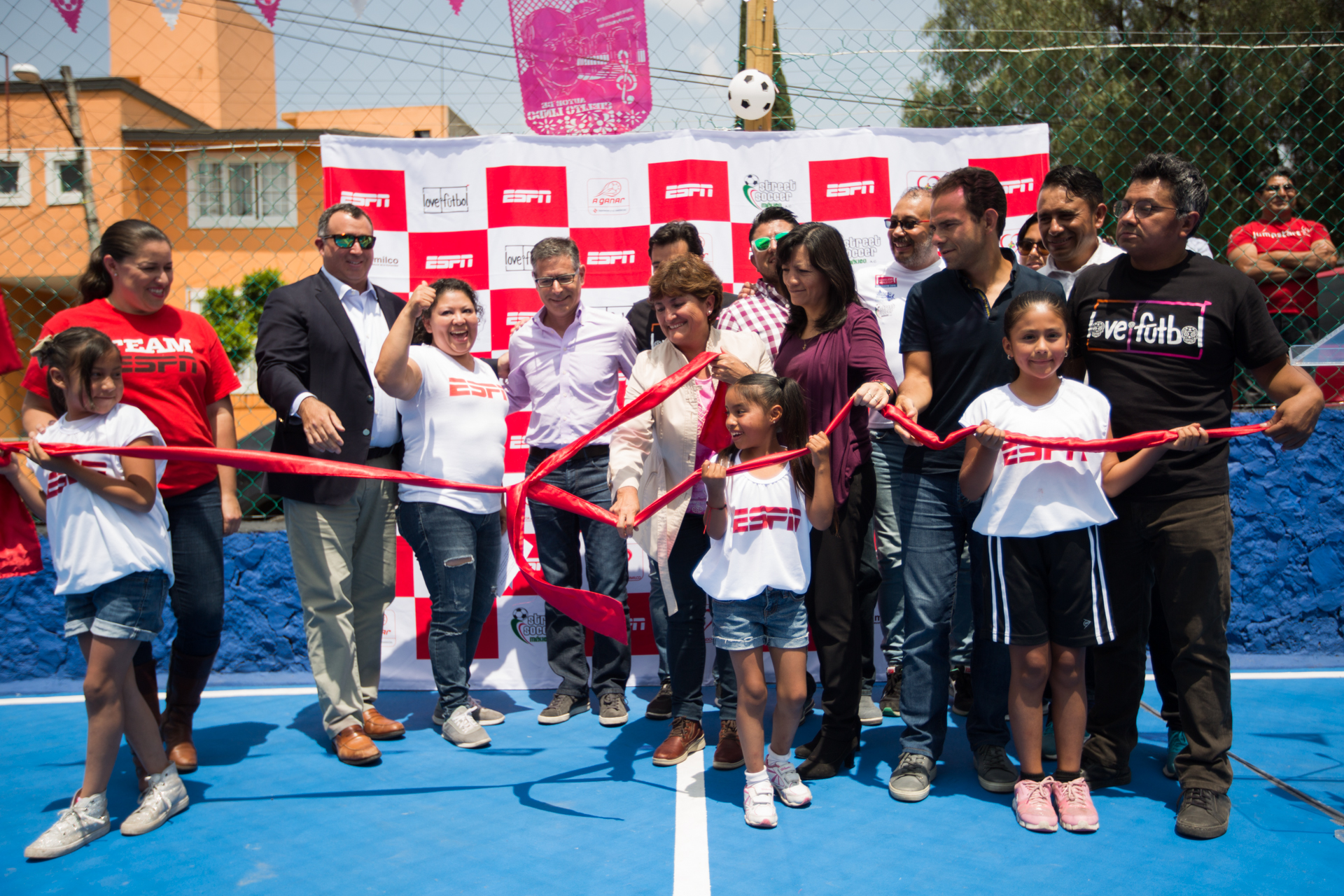
It’s been challenging to say the least, because it was a project built from scratch. But the team at ESPN and across the partners we work with truly believe in the power of sport to change lives and are beyond dedicated to see communities benefit and thrive as a result of this project. So it’s been inspirational and gratifying to watch it grow over time.
5. The Beyond Sport Foundation celebrates projects from all over the world that are harnessing sport to do good. Is there a common thread among the most effective projects?
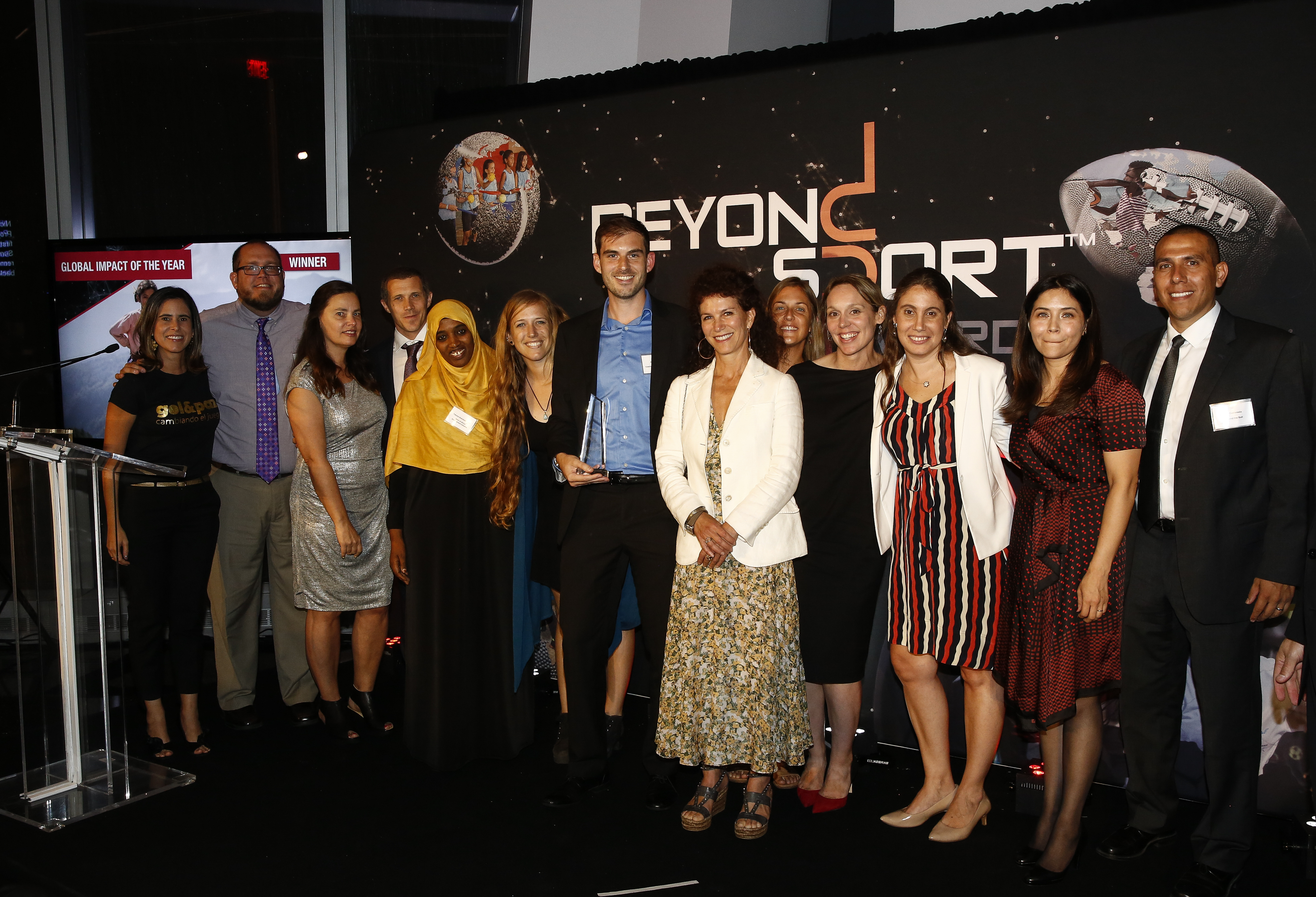
I would say the two elements that always capture the judges are: 1. Innovation - a new and different way of using sport, or addressing a unique need or achieving a different type of outcome; and 2. Impact measurement. And I don't mean that you have measurement system in place, but that you are actually able to show the impact. A lot of organizations share how they are measuring, but they don't show the actual outcome.
6. You have worked with some of the world’s most innovative thinkers in this space. Who is someone who really challenged you or inspired you and why?
Over the years I have been inspired countless times, by members of my own team as well as by the incredible people in our network. We even did an “Inspirational 50 List” in 2015 for the Daily Telegraph and it was the hardest thing trying to narrow it down just to 50.
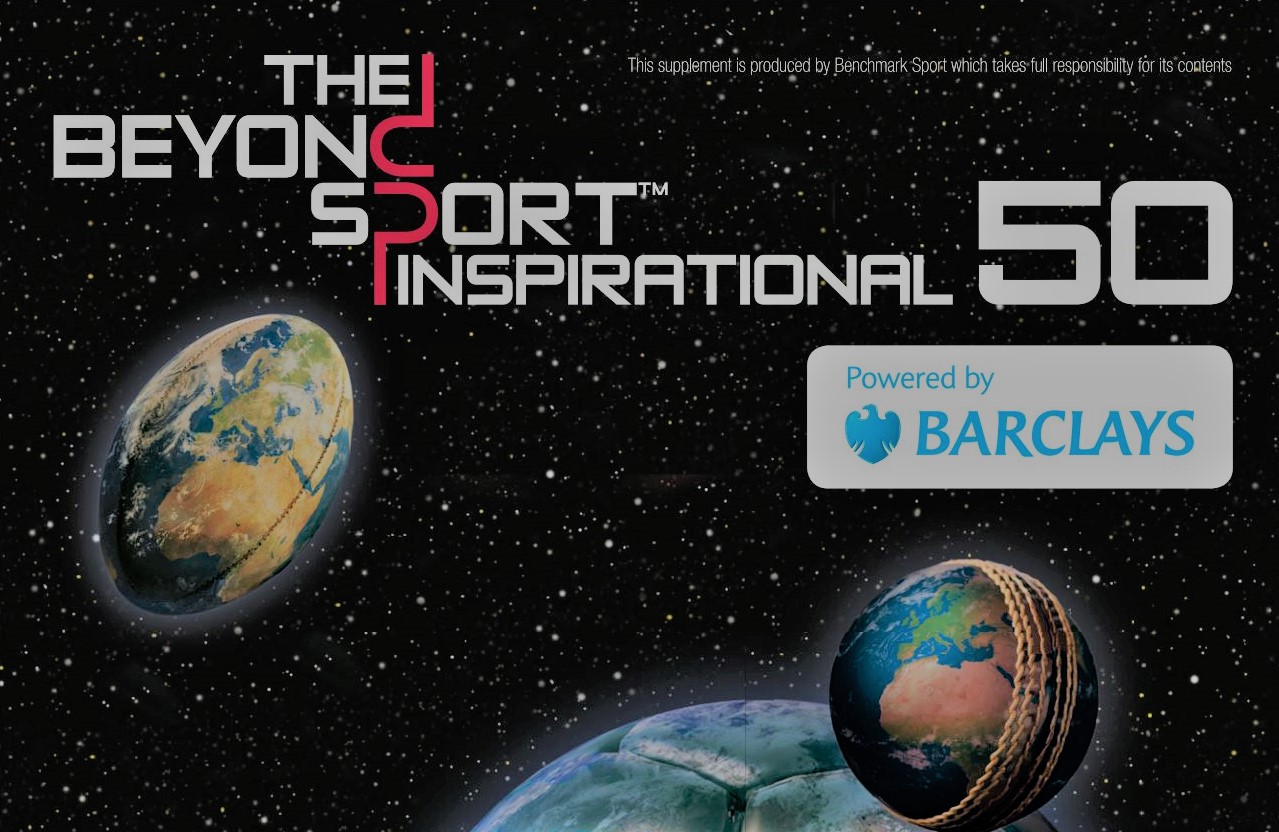
People like Fatuma Adan, Pete and Steve Fleming, Matthew Spacie, Seren Fryatt, Michael Johnson, Dikembe Mutombo, Sarah Murray, Nora Dooley, Bilqius Abdul Qaadir… those are just a few people who inspire me every day and make me love what I do.
7. You played a key role in the formation of thinkBeyond which will celebrate five years in 2019. Why did you think it was important back then, and what impact do you think it’s had on the sector since?
It was important because we were at a crucial moment in Beyond Sport’s sustainability. We work on a sponsorship-based model and our global partnership with Barclays was coming to an end when their headline Premier League rights finished. We knew that we needed to change with the times if we wanted to continue. Additionally, as Beyond Sport was a convener and a platform for the sector, we had gathered so much knowledge and experience in the five years of being in the space, but had no real outlet to actually share that expertise to help the private and government sectors really integrate sport into their social responsibility strategies. So thinkBeyond allowed us to maintain neutrality with Beyond Sport and to be less reliant on sponsors. It also enabled us to provide strategic advice to organizations who might have the resources and the funds to invest in sport and social change, but might not have the know how or understanding to actually make it happen.
And, I don't know if it’s had an impact on the sector, but it has allowed us to facilitate a lot more resources and funding to great organizations around the world.
8. Beyond Sport and thinkBeyond both take a shared value approach. Can you explain what that means and why it is so important to the businesses?
We truly believe that if a strategy, a project, a cause, is not aligned with your organizational objectives, it will not last. It won’t continue to be supported or funded or, most importantly, it won’t make the maximum impact. So everything we do ensures that the social cause aligns with the business or organizational strategy of whomever we are working with.
9. As an American who lived and worked in the UK for 10 years, and for most of Beyond Sport’s history, how would you say the dual perspective has impacted your work?
Lol. Well I have a wacky way of combining both languages. So I say diary and calendar, and switch my dates around and sometimes add “U’s” to my words. But also, yes I think it’s come in handy that we as a business know about the US and UK sport industry and are entrenched in both, whether that be through our sister companies or our own networks. It provides a really interesting perspective on where the market could go, and where it has been.
10. One of Beyond Sport's newest initiatives -- Beyond Sport NextGen powered by NYU -- will launch early in 2019. Why do you think it’s so important to work from within the industry to expand and improve the way sport can be used as a tool for social change?
This program in partnership with NYU aims to educate the next generation of SVPs, presidents, CEOs and founders in the sport sector around key elements of social responsibility -- and the specific opportunity a socially focused strategy and activation has to benefit business.
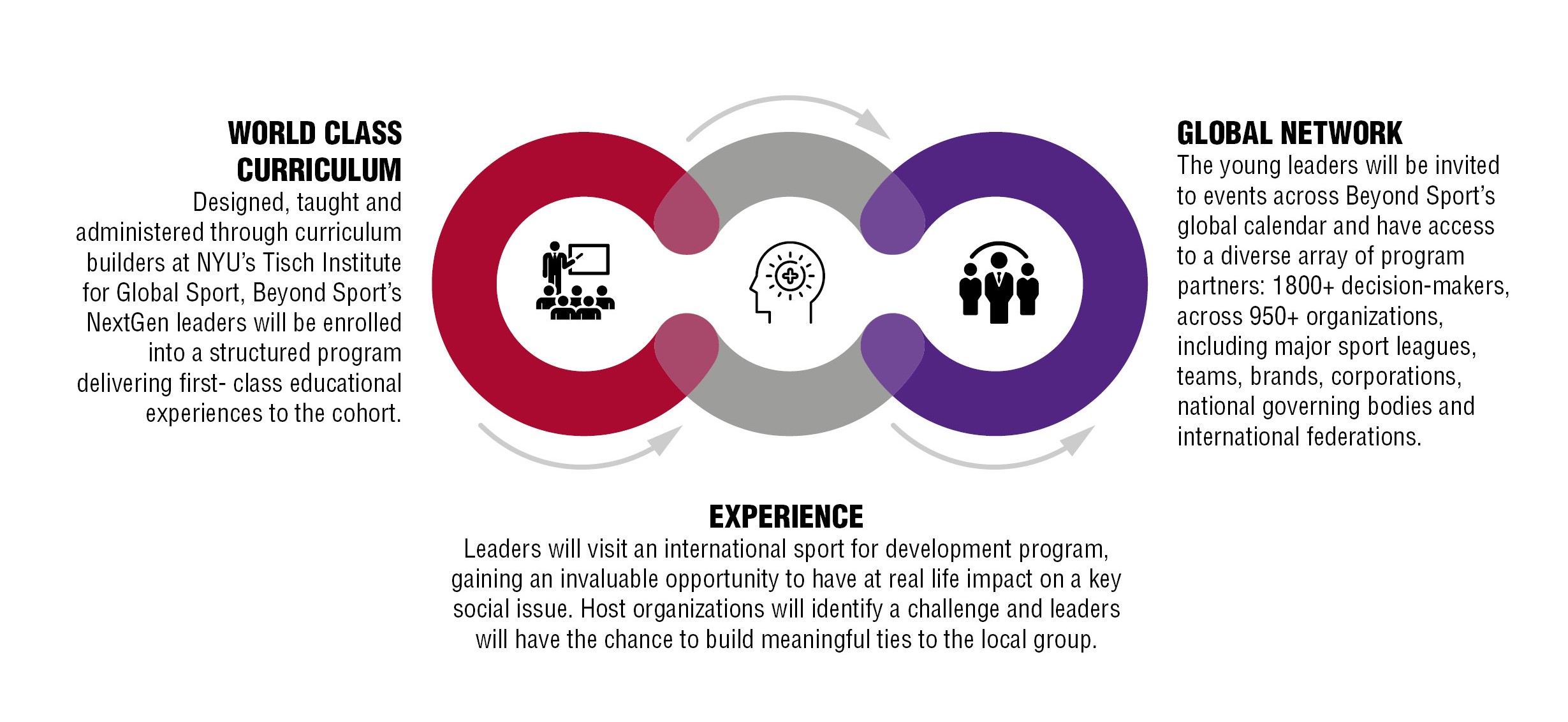
Echoing our shared value mission, we believe that in order for social impact to really work, it needs to be integrated into every part of an organization and tie into the overall objectives. Too often, CSR and sustainability departments are siloed, and the initiatives are done in isolation, therefore not maximizing both the resources of the organization, but also not making the most impact. Beyond Sport NextGen is about educating the future leaders in the sport industry - across ALL departments - in the importance and value of social change strategies, policies and programs. I really think that this could change the face about how the American sport industry in particular operates.
BONUS: What does 'going beyond sport' mean to you?
A decade of work, dozens of sleepless nights, hundreds of thousands of air miles, amazing friendships, countless unbelievable memories and life-changing experiences.
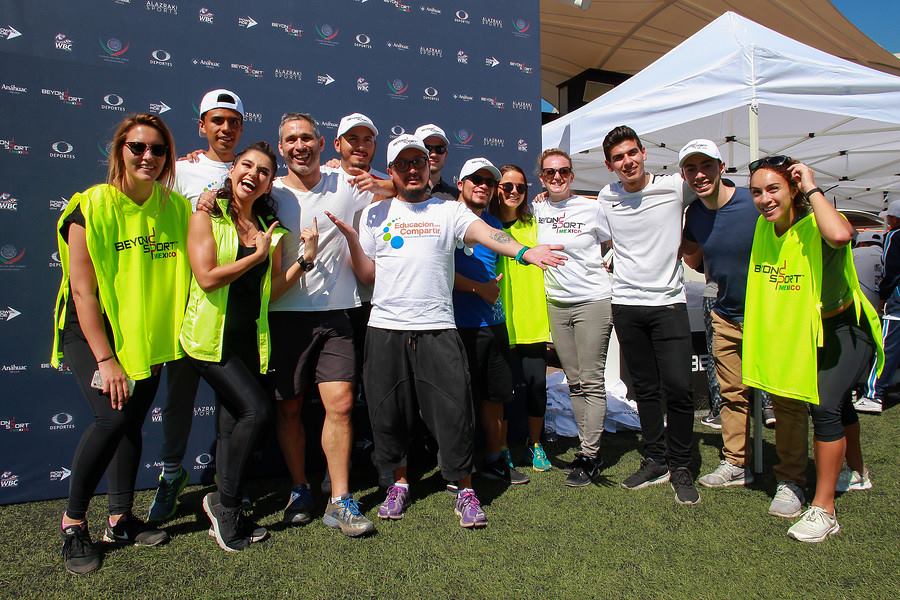
Missed our 10th anniversary interview with Beyond Sport Founder & President, Nick Keller? You can read it here.